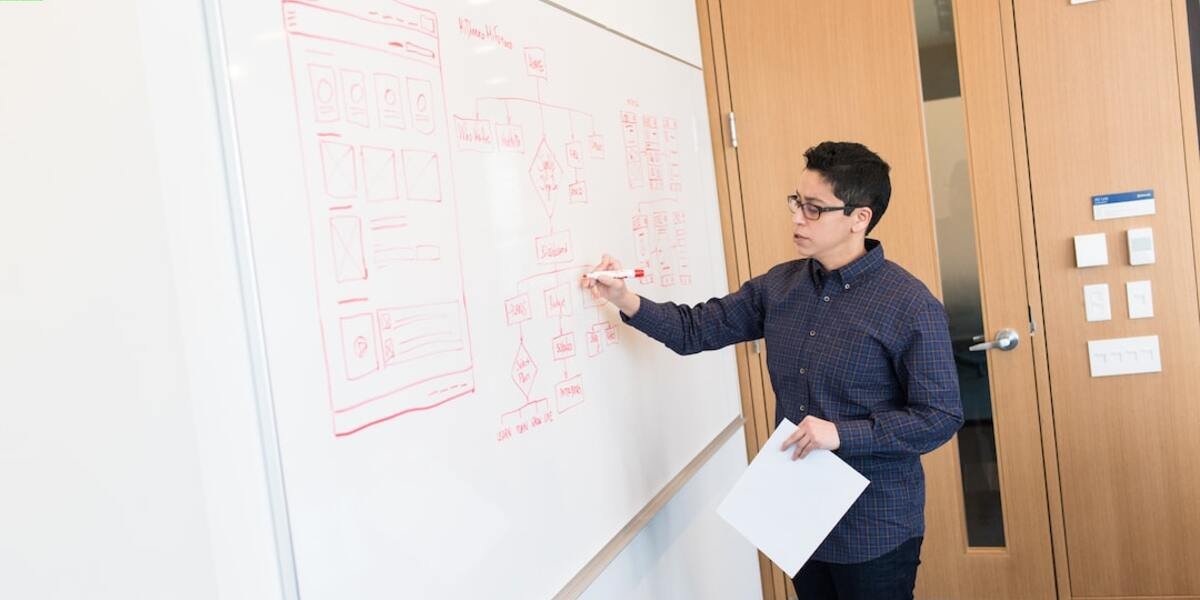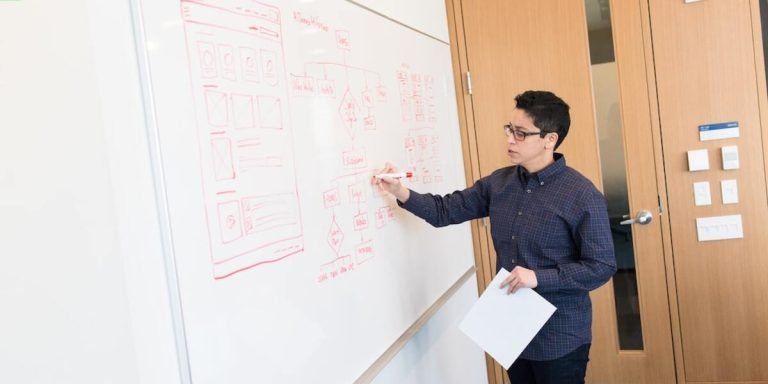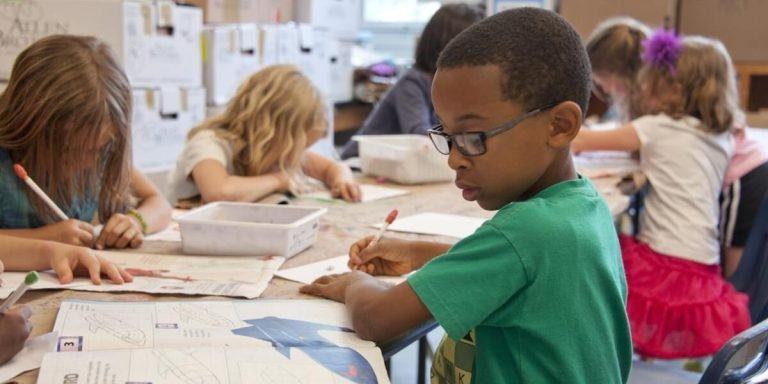What to Ask at Parent Teacher Conference for a Holistic Understanding of Your Child’s Progress
Navigating a parent-teacher conference can often be challenging for parents. Knowing “what to ask at parent teacher conference” is crucial in gaining an integral viewpoint about your child’s academic and personal development. After all, these meetings are the best time to understand exactly how your child is performing beyond grades.
This article will serve as a guide for those who may feel daunted by or unprepared for such conferences; it aims not just to help you create an informed list of questions but also advise on taking note of subtle cues from educators that might suggest areas of concern or achievement. It essentially bridges the gap between home and school, enabling parents and teachers alike to harmonize their efforts towards children’s holistic growth.
Did you know?
Surprisingly, while most parents focus on academic performance at Parent-Teacher Conferences, studies indicate that discussions around social skills and emotional development provide a more holistic understanding of the child’s progress.
Understanding the Agenda: Key Questions for Parent-Teacher Conferences
Navigating the educational journey of a child can often feel like exploring an uncharted territory. However, parent-teacher conferences serve as essential guideposts that provide insights on your child’s academic progress and overall development in school. One integral way to ensure these meetings are effective is by preparing properly articulated questions in advance.
In this era where technology has seamlessly integrated into education, it becomes imperative for parents to understand how schools are leveraging these advancements to improve learning outcomes. For example, you could ask about the use of interactive software or apps in teaching complex concepts and if any specialized training was provided to educators for their proficient usage.
To further delve into topics relating directly with your child’s experience at school, queries regarding educator-student dynamics should not be overlooked. It will help discern whether there is adequate support provided when undergoing challenges related to understanding new subjects or dealing with stress associated with rigorous curriculum introduced due their integration efforts towards advanced technological tools.
Remember you’re investing time both yours’ and teachers’, therefore crafting thoughtful inquiries based on “Parent & Educator Support” endorses mutual respect while empowering each other roles during the process of nurturing young minds through knowledge impartation amidst rapidly changing times brought forth by modern tech-reliant lifestyles dominating 2023!
The Importance of Academic Progress Inquiries
When you attend a parent-teacher conference, there’s no doubt that understanding your child’s academic progress is crucial. It not only aids in making informed decisions about their learning journey but also fosters better communication between parents and teachers.
What should you ask at the parent-teacher conference? Consider these essential inquiries:
1. Current Performance Status: Begin by asking where your child stands academically compared to the class or grade level standards. This helps identify areas of strength and weakness based on performance metrics.
2. Learning Style Affinity: Inquire about which teaching style suits best for your kid as every student has varied ways of grasping knowledge.
3. Areas Needing Improvement: Don’t shy away from discussing areas that require attention and improvement strategies that can be implemented both at school and home.
4.Unexpected Behaviours Detected: Often educators may notice certain behaviours which could be unexpected or unusual during classroom routines; it’s important these are discussed openly too so remedies can begin early if necessary.
5.Challenges Faced During Technology Integration : With technology integration being an integral part of education in 2023, it would help understand any challenges experienced while using various digital tools for studying.
6.Progression Monitoring Plan : Understanding how progress will be evaluated over time gives clear indicators whether proposed plans are working successfully towards desired outcomes.
Evaluating Social Development and Behavioral Concerns
One crucial question on what to ask at a parent-teacher conference revolves around their social skills – both inside and outside the classroom. Ask how well they interact with other students in school; it provides significant insight into their existing interpersonal relationships.
It would also be advisable to assess how integrated they are within group activities or projects conducted at school. Are there signs of good collaboration efforts between your child and his/her peers? This inquiry can provide valuable information about any latent leadership qualities as well.
Try discussing technology integration strategies employed this year in 2023 if they’ve proven effective enough towards shaping constructive attitudes among learners under different conditions: coursework completion rates, focus levels maintained throughout lessons learned online versus traditional formats taught face-to-face…etc.) Explore initiatives taken by teachers introducing new software tools meant toward enhancing interactive sessions while improving upon overall user experience from all angles concerned!
Building a Collaborative Relationship with Educators
Establishing a collaborative relationship with educators is an essential undertaking for parents, particularly in this modern era where technology integration plays such a crucial role within education. Key conversations that ignite these relationships often occur during parent-teacher conferences. However, many parents may feel unsure about what they should ask during these meetings to understand better the school’s approach towards integrating technology in your child’s curriculum.
To start off, it might be valuable to inquire how their educator incorporates various technological tools and software into the instructional process. For instance, do they use digital textbooks or online platforms for assignments? How is classroom time divided between traditional learning methods and tech-based ones?
In addition to understanding how schools adopt edtech solutions on a daily basis there are some other important areas you can delve into as well. Questions around safeguarding student data privacy when using educational applications or concerning steps taken by the school authorities after identifying any loopholes in cyberspace security systems can provide insights on safety measures followed by them.
Remember: A strong bond between parents and teachers not only helps students thrive acadically but also facilitates open communication channels which prove beneficial when navigating complex topics like technology integration in today’s classrooms.
Strategies for Positive Communication with Teachers
In 2023, the importance of positive communication between parents and teachers cannot be overstated. It goes a long way in facilitating effective learning processes and promoting healthy emotional development for children–especially amidst a technology-driven educational landscape.
When it comes to incorporating technology into education—a concept dubbed Technology Integration—it’s critical that both educators and parents work together seamlessly. This is where strategies for positive communications come in.
1. Understand Each Other’s Perspective: The first strategy revolves around understanding each other’s perspectives—empathy can bridge gaps better than any technological tool ever could.
2. Make Use Of Digital Tools For Communication: Next, utilize digital platforms designed explicitly for parent-teacher interaction—like ClassDojo, Edmodo or Bloomz—to keep open lines of dialogue regarding your child’s progress at school.
3.Use the “Ask” Technique During Meetings: A proactive approach when discussing student progress is key; especially during important discussions such as those held at parent teacher conferences –ask relevant questions like ‘How can I support my child with their online assignments?’, ‘What tools are being used?’, ‘What safety measures are put in place?’ etc.–this demonstrates engagement while also keeping conversations focused on how to best assist with academic progression.
Establishing Mutual Goals for Student Success
In the realm of childhood education, establishing mutual goals for student success is a crucial step towards building a collaborative relationship with educators. This partnership forms an integral part of technology integration in education and can be initiated and fostered during parent-teacher conferences.
When attending these meet-ups, there are some critical questions that parents should focus on to establish clear objectives were aiding their child’s academic growth.
1. “What specific skills will my child learn this year?” Grasping knowledge about the precise areas your youngsters need to develop provides you with insight into where they might struggle or excel.
2. “How does classroom teaching incorporate technology?” Since we are in 2023 and digital literacy has become mandatory for today’s young learners, understanding what aspects of it are being used at school can help guide learning at home as well.
3. “How do instructional methods support personalised learning?”. Understanding how educators adapt whilst keeping individual aptitudes in mind helps draw clearer insights into customizing resources appropriately outside school premises too.
5.“ Can I get recommendations on suitable educational apps or websites ?” These queries not only give an idea regarding additional tools but indicate parental involvement .
Enhancing Student Outcomes Through Effective Meetings
To enhance student outcomes through these interactions, understanding what precisely to ask at parent teacher conference becomes critical for both parties involved. Discussions should extend beyond academic performance metrics or behavioral concerns; they must delve into areas like personalized learning paths facilitated by EdTech tools or digital content’s effectiveness in enhancing comprehension.
As vital stakeholders in children’s educational journey, parents warrant proactive participation from teachers when discussing their child’s tech-based learning process during parent-teacher meetings – something that falls squarely within the scope of Parent and Educator Support strategies today. Ensuring technological adeptness complements traditional teaching methods could stimulate students’ curiosity while keeping them engaged with varied interactive methodologies available.
Thus strategizing effective communication during such meetings will not only strengthen parental involvement but would also foster open dialogue about embracing innovations effectively – contributing positively towards better student engagement levels thereby improving overall results substantially!
Identifying Support Resources and Additional Help
As parents and educators, supporting a child’s educational journey is pivotal. One of the crucial aspects to look into while enhancing student outcomes is identifying support resources and additional help. This aspect becomes even more significant when we consider parent-teacher conferences as they offer both parties an opportunity not just for open communication but effective collaboration.
In today’s digital age where technology has seamlessly integrated with education systems, these meetings can pave the way for students’ success by connecting them with proper assistance using technological tools available at hand. Notably during these conferences, it’s advisable to discuss what resources or interventions may boost your child’s academic performance or address their specific areas of need.
Firstly, familiarize yourself with learning management platforms used in schools such as Google Classroom or Schoology that allow tracking progress report cards facilitating frequent discussions on improvements between parents and teachers. Additionally asking about accessibility to online tutoring services or homework support sites could also prove helpful guiding your youngsters through tough assignments outside school hours.
Secondly, ask questions related specifically towards utilizing tech-related study aids which enhance retention – like interactive quizzes applications etc., during such interactions “what kind of apps/websites do you recommend?” might be a good conversation starter regarding this topic.
Moreover underlining any potential aids from local libraries including free access to e-books/audio books/resources beneficial resource identification as well.
Monitoring and Adapting Individual Learning Plans
Keeping up with the pace of technological advancements, education systems worldwide have started integrating technology into their teaching methodologies. One such approach is Individual Learning Plans (ILPs), devised to improve student performance and facilitate personalized learning experiences.
However, if we want ILPs to be truly effective in enhancing student outcomes, it’s crucial that parents and educators correctly monitor these plans by communicating frequently. Here are four key points you might consider asking at a parent-teacher conference to ensure successful implementation of ILP.
1. **Understanding the individualized plan:** Start your conversation seeking clarity about what exactly an individualized learning plan entails for your child. It may include tailor-made instructional methods based on the learner’s needs or focused targets set over certain periods.
2. **Ask about progress monitoring tools**: In this digital age, several online resources allow tracking academic progression real-time which could help adapt strategies accordingly whenever necessary rather than waiting for report cards annually or biannually.
3. **Requesting a demonstration using Technology integrated methods:** Encourage teachers to demonstrate how they use tech devices like tablets or specific software packages during instruction time – it can give you a tangible idea of how concepts are being taught.
4.Raising broader questions related directly/indirectly with academics: For example – ”How does my kid handle group activities?”, “Does he/she actively participate in class discussions?” These queries not only make sense academically but also helps understand other aspects including social development and cognitive skills.
Conclusion
In conclusion, gaining a holistic understanding of your child’s progress at school doesn’t have to be an enigma. Empowering yourself with the right questions is the first step towards becoming proactive in their education. Remember it’s not just about academic performance but also behavioral development and social interactions that matter.
Never underestimate what you can uncover by simply knowing ‘what to ask at parent teacher conference’. It could lead you on a journey filled with insightful revelations about your young one! Looking for more guidance?
We encourage parents and educators alike to delve deeper into our website – a treasure trove full of resources aimed at supporting all aspects of children’s learning journey.







